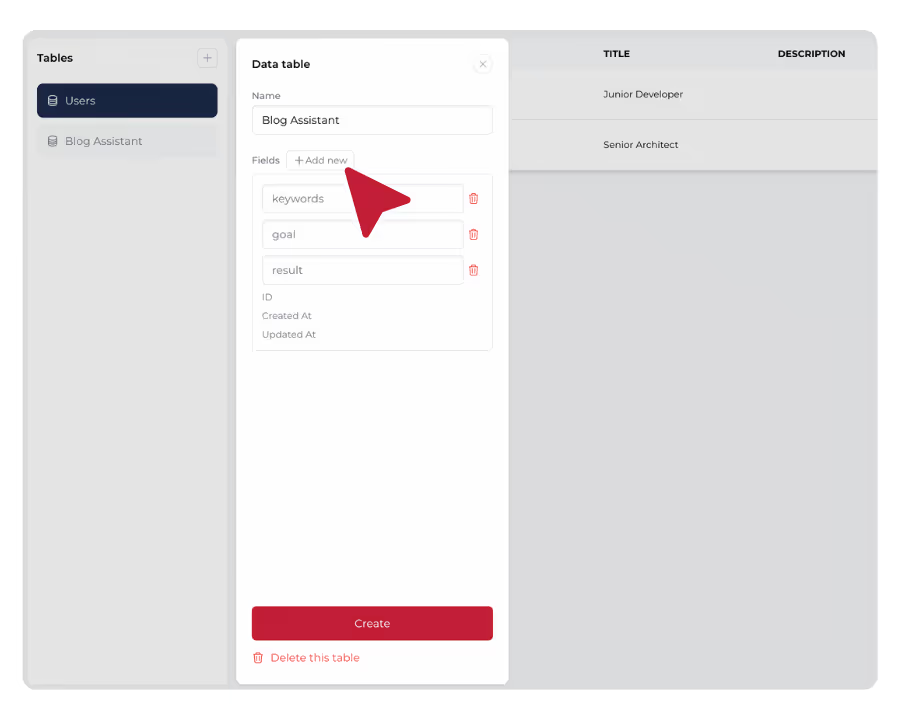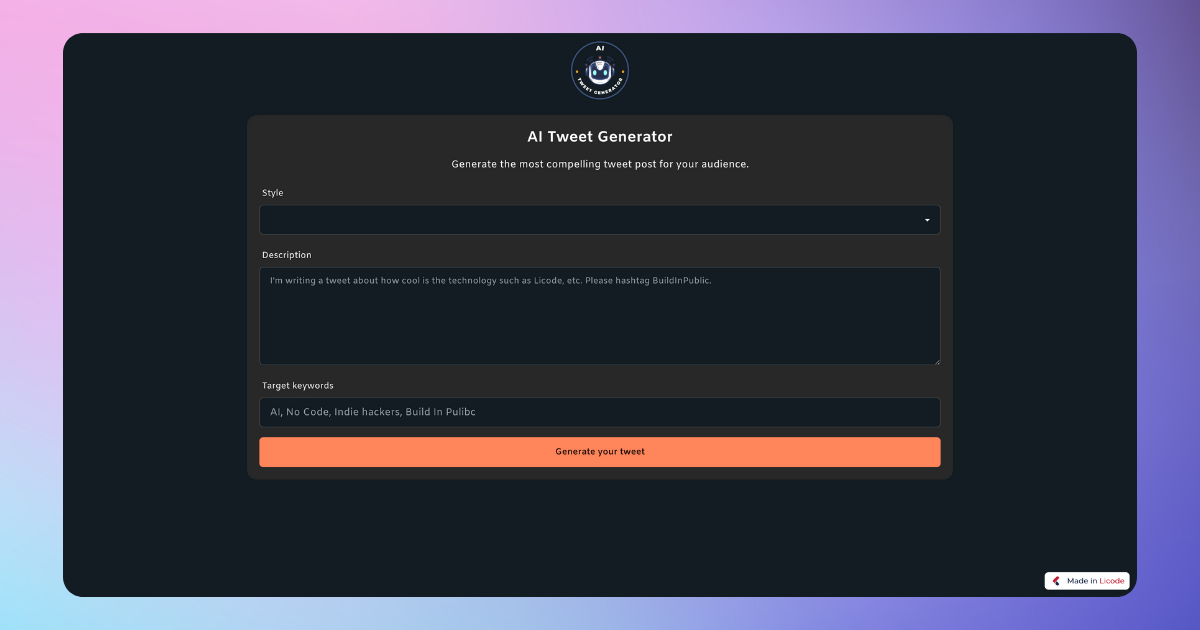Optimize Environmental Policies with Claude AI
Learn to write effective environmental policy prompts for Claude AI
Understanding Environmental Policy Prompts
In 2025, environmental policies are more critical than ever. Crafting precise prompts can help you leverage AI effectively to address environmental challenges. A good prompt includes context, detailed questions, and expected outputs. For example, instead of asking, "How can we reduce pollution?", a better prompt would be, "Identify three strategies to reduce urban air pollution, considering cost and effectiveness." This approach provides clear guidelines and expected results.
Why Specificity Matters
Specific prompts lead to targeted solutions. Vague prompts risk irrelevant outcomes. By refining your queries, you ensure the AI works on precise problems, enhancing the utility of AI tools like Claude. For instance, asking, "Suggest policies for water conservation in arid regions," directs the AI to a specific geography and issue.
Relevance in 2025
As environmental concerns grow, leveraging AI to develop effective policies is vital. Claude AI provides nuanced insights when fed with crafted prompts. This capability is invaluable in creating proactive measures against environmental degradation. Appaca, an AI platform, can further assist by offering tools to build AI products that utilize these insights effectively.
What to remember
Understanding Prompts
Effective prompts require specificity, examples, and clear expected outcomes for precise AI responses.
Importance of Specificity
Specific prompts lead to targeted solutions, guiding AI to address exact issues efficiently.
Relevance for 2025
text
Steps to Build an App Using Environmental Policy Prompts
Step 1: Identify your unique value proposition. Determine what makes your app special in addressing environmental policies.
Step 2: Envision how Claude AI can utilize this differentiator to help users solve issues. For example, how can AI analyze data to suggest effective policies?
Step 3: Create an account on Appaca or similar app-building platforms to start your project.
Step 4: Gather all relevant environmental policy knowledge. Prepare it in files or structured web pages for efficient use.
Step 5: Write the instructions for custom AI models clearly, reflecting the same care as when crafting prompts.
Step 6: Select an appropriate Large Language Model (LLM) for Claude AI and upload the gathered knowledge to it.
Step 7: Design the app's user interface to be intuitive and accessible for policy makers.
Step 8: Develop a robust background prompt that efficiently guides app users in their decision-making process.
Step 9: Incorporate additional features such as data visualization tools or real-time policy updates to enhance user experience.
Step 10: Launch and market your app to the target audience, emphasizing its unique capabilities in enhancing environmental policies.
Trusted by incredible people at







Enable AI in your app
Licode comes with built-in AI infrastructure that allows you to easily craft a prompt, and use any Large Lanaguage Model (LLM) like Google Gemini, OpenAI GPTs, and Anthropic Claude.


Supply knowledge to your model
Licode's built-in RAG (Retrieval-Augmented Generation) system helps your models understand a vast amount of knowledge with minimal resource usage.
Build your AI app's interface
Licode offers a library of pre-built UI components from text & images to form inputs, charts, tables, and AI interactions. Ship your AI-powered app with a great UI fast.


Authenticate and manage users
Launch your AI-powered app with sign-up and log in pages out of the box. Set private pages for authenticated users only.
Monetize your app
Licode provides a built-in Subscriptions and AI Credits billing system. Create different subscription plans and set the amount of credits you want to charge for AI Usage.


Accept payments with Stripe
Licode makes it easy for you to integrate Stripe in your app. Start earning and grow revenue for your business.
Create custom actions
Give your app logic with Licode Actions. Perform database operations, AI interactions, and third-party integrations.


Store data in the database
Simply create data tables in a secure Licode database. Empower your AI app with data. Save data easily without any hassle.
Publish and launch
Just one click and your AI app will be online for all devices. Share it with your team, clients or customers. Update and iterate easily.

Browse our templates

StrawberryGPT
StrawberryGPT is an AI-powered letter counter that can tell you the correct number of "r" occurrences in "Strawberry".

AI Tweet Generator
An AI tool to help your audience generate a compelling Twitter / X post. Try it out!

YouTube Summarizer
An AI-powered app that summarizes YouTube videos and produces content such as a blog, summary, or FAQ.
Don't take our word for it
I've built with various AI tools and have found Licode to be the most efficient and user-friendly solution. In a world where only 51% of women currently integrate AI into their professional lives, Licode has empowered me to create innovative tools in record time that are transforming the workplace experience for women across Australia.
Licode has made building micro tools like my YouTube Summarizer incredibly easy. I've seen a huge boost in user engagement and conversions since launching it. I don't have to worry about my dev resource and any backend hassle.
FAQ
Q1
Default Rich Text Content
This is the default rich text value
Q2
Default Rich Text Content
This is the default rich text value
Q3
Default Rich Text Content
This is the default rich text value
Q4
Default Rich Text Content
This is the default rich text value
Do I need any technical skills to use Licode?
Not at all! Our platform is built for non-technical users.
The drag-and-drop interface makes it easy to build and customize your AI tool, including its back-end logic, without coding.
Can I use my own branding?
Yes! Licode allows you to fully white-label your AI tool with your logo, colors, and brand identity.
Is Licode free to use?
Yes, Licode offers a free plan that allows you to build and publish your app without any initial cost.
This is perfect for startups, hobbyists, or developers who want to explore the platform without a financial commitment.
Some advanced features require a paid subscription, starting at just $20 per month.
The paid plan unlocks additional functionalities such as publishing your app on a custom domain, utilizing premium large language models (LLMs) for more powerful AI capabilities, and accessing the AI Playground—a feature where you can experiment with different AI models and custom prompts.
How can I monetize my AI app?
Licode offers built-in monetization tools that make it simple to generate revenue. You can create subscription plans, set up tiered access, or offer one-time payments for extra AI credits or premium features.
Monetization is powered by Stripe, ensuring secure, seamless payments. Setting up your Stripe account takes only a few minutes, so you can start earning quickly with minimal effort.
Is my data safe with Licode?
We take data security and privacy very seriously with Licode.
All data stored in your app's databases and in your AI model's instructions are encrypted and cannot be retrieved by our teams or by the LLM providers like OpenAI, Google, and Anthropic.
We have implemented GDPR-compliant rules within our systems to ensure that you can always reclaim all data you have uploaded, and that none of your information can be accessed without your prior consent.
In addition, we work with cybersecurity professionals to ensure that all data is hosted and encrypted on a secure server managed by AWS.
How do I get started with Licode?
Getting started with Licode is easy, even if you're not a technical expert.
Simply click on this link to access the Licode studio, where you can start building your app.
You can choose to create a new app either from scratch or by using a pre-designed template, which speeds up development.
Licode’s intuitive No Code interface allows you to build and customize AI apps without writing a single line of code. Whether you're building for business, education, or creative projects, Licode makes AI app development accessible to everyone.
What kind of experience will my audience have with the AI app?
Your app will feel like a personalized extension of your content.
Users can interact with the AI based on the resources you provide, making the experience feel like they’re engaging directly with your expertise.

